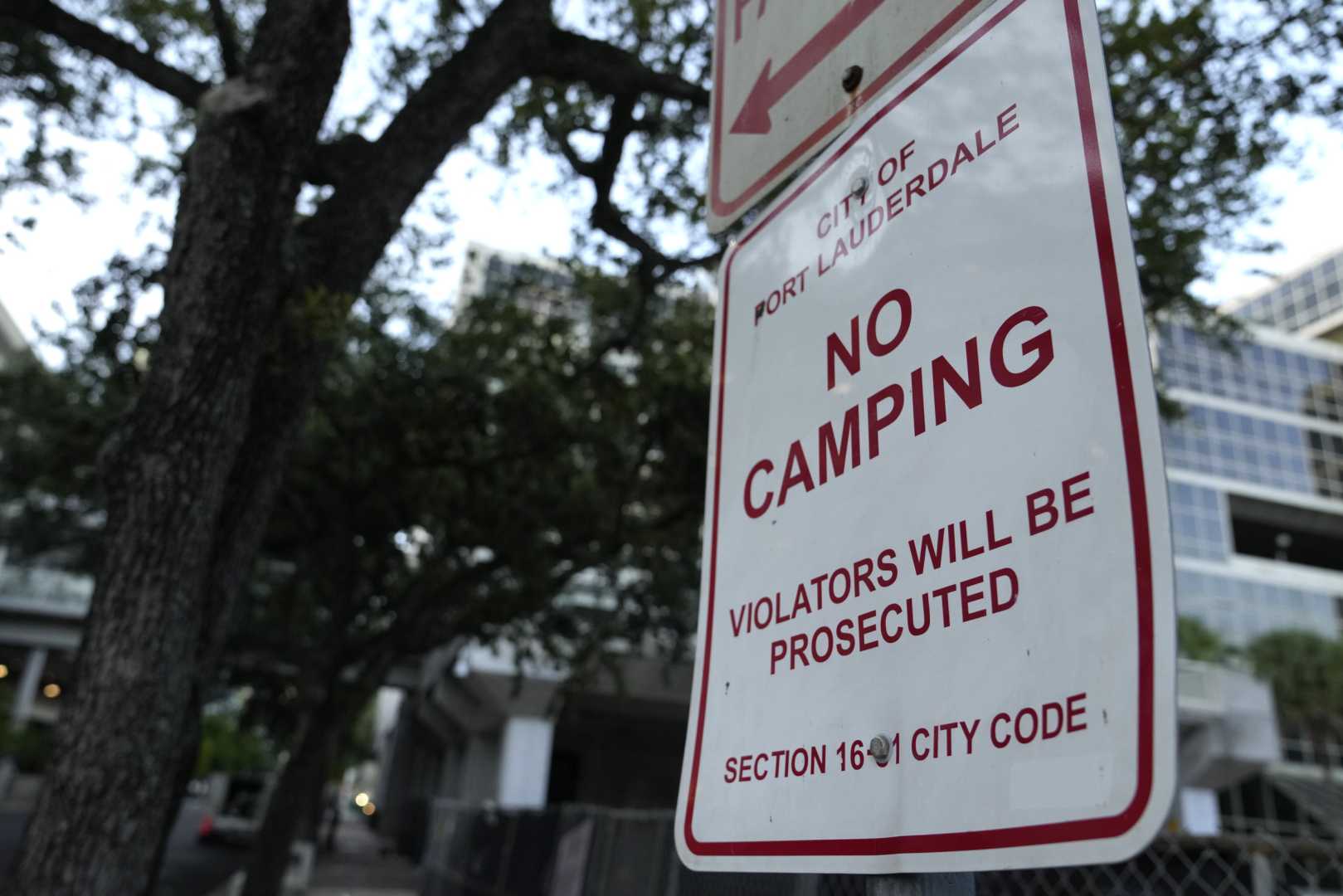News
Florida Implements Ban on Public Camping to Address Homelessness

A new law aimed at addressing the homelessness crisis has gone into effect in the state of Florida. As of Tuesday, it is now illegal to sleep or camp on public property without authorization, following the implementation of Statute 1365, formerly known as House Bill (HB) 1365. This statute prohibits counties and municipalities from allowing individuals to regularly sleep on public land, including public buildings and rights-of-way within their jurisdictions.
Daniella Levine Cava, Mayor of Miami-Dade County, highlighted the key aspects of the bill in a memorandum sent to the Board of County Commissioners in September. She stated, “HB 1365 prohibits counties and municipalities from authorizing or allowing individuals to regularly sleep or camp on public property, at public buildings or their grounds, or on public rights-of-way within their jurisdictions.”
Under this statute, cities and municipalities are required to establish designated camping areas for the homeless population. These areas must be approved by the Florida Department of Children and Families and be equipped with security, behavioral health services, and bathrooms with running water. The memorandum warns that, starting January 1, 2025, any city or municipality failing to comply within five days of a written complaint could “face legal action from any resident or business owner within their jurisdictions or the Florida Attorney General.”
Different reactions to this legislative measure have surfaced across the state. In Pensacola, Mayor D.C. Reeves has stated his opposition to addressing homelessness through arrests. According to the Pensacola News Journal, Reeves expressed, “Arresting our way out of homelessness is not going to solve our problem.” He mentioned plans to allocate $1 million to increase housing availability and emphasized the need for faster solutions.
However, not all local agencies agree with the new approach. Ron Book, Chairman of the Miami-Dade County Homeless Trust, issued a statement saying, “We reject sanctioned encampments and believe there is no evidence that they reduce homelessness. We are committed to investing in solutions that deliver long-term results.”
The homelessness issue in parts of Florida, including Miami, Miami Beach, and Miami-Dade County, has seen a marginal increase of 2% since 2023 according to an annual survey conducted by the trust. Another census will be conducted in January, as required by the United States Department of Housing and Urban Development.
Attempts to reach officials in Miami-Dade County and the City of Tampa for comments on the new law have not yet yielded any responses, according to USA TODAY.












